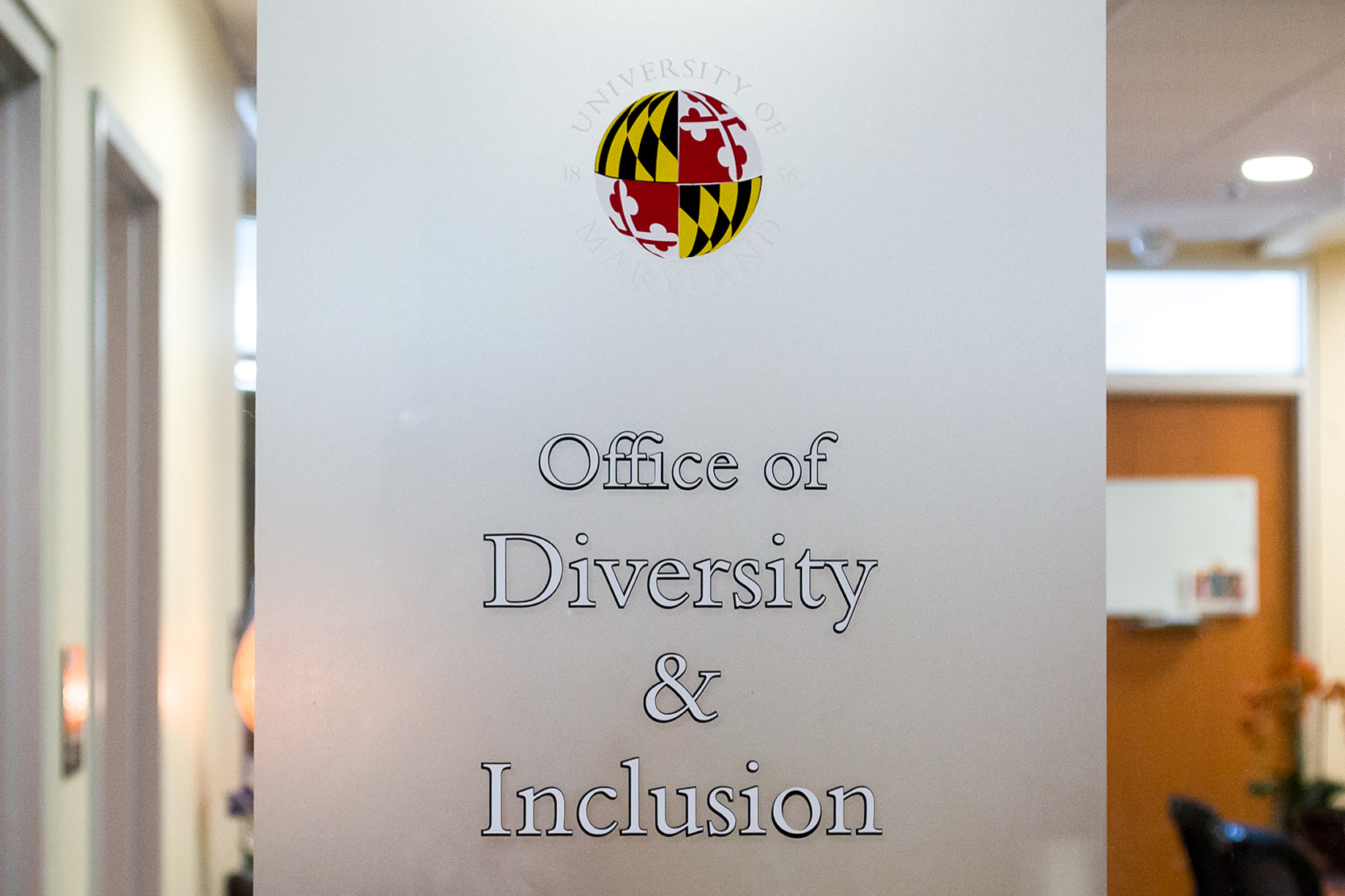By Bridget Byrne, Marijke Friedman, Akshaj Gaur and Ilana Williams
Staff Writers
Four finalists for the University of Maryland’s diversity and inclusion assistant vice president position shared their visions and qualifications for the role during a series of presentations in April and May.
The person selected for the position will report to Georgina Dodge, the university’s diversity and inclusion vice president.
The position will supervise the diversity and inclusion office’s Bias Incident Support Services, diversity training and education, LGBTQ+ Equity Center, Nyumburu Cultural Center and the Office of Multi-ethnic Student Education, Dodge wrote in a university-wide email on April 21.
Here’s an introduction to each of the four finalists.
Jaris Williams
Jaris Williams hopes to implement student programming and staff professional development in this university’s diversity and inclusion office.
Williams is associate dean of students and director of inclusion support at American University. He also teaches courses on race and identity as an adjunct faculty member at American University’s education school.
Williams wants to implement programs that will examine effective allyship, Blackness in the diaspora and how to be an effective change maker, he said, adding that he hopes to collaborate with this university’s cultural center on some of these programs.
“Inclusion takes a village,” Williams said. “One of the worst things is for a student to confide in a staff member…and maybe the staff member doesn’t know the right place to refer that student.”
Williams would like to implement trauma-informed protocols in the screening process for complaints.
One of the restorative services Williams currently offers at American University is meeting with faculty members to discuss how to reintegrate students who might say something racist, homophobic or sexist in the classroom.
Williams also suggested offering a mandatory class at this university that would address college life, restorative principles and race and identity.
“This [position] needs to be visible and needs to be present,” Williams said. “You need to start to develop equity and rapport with community members.”
[UMD LGBTQ+ Equity Center director finalists share goals for role]
Stephanie Chang
Chang emphasized her past experience at this university, where she earned a doctorate degree and helped create and lead intergroup dialogues, facilitated an LGBTQ+ discussion group and taught classes on diversity and social justice.
“There’s something about the University of Maryland that keeps bringing me back,” she said.
Chang is the University of Delaware’s assistant vice president of institutional equity for student life. In this role, she oversees the student diversity and inclusion office, the intercultural engagement center and the university’s new strategic plan to advance racial equity and inclusion.
Chang immigrated to the U.S. from Taiwan as a child and was the first in her family to graduate college, she said, adding that she is a member of the LGBTQ+ community.
At this university, Chang hopes to tackle ongoing challenges in diversity, equity and inclusion by building relationships, utilizing data collection and working to create strategic plans for individual colleges.
“Given the current infrastructure, I don’t believe it’s possible for ODI to simply do this on [its] own,” Chang said during her presentation. “I think [we should]… work in partnership with these divisions to help facilitate a process that they can create and establish their own diversity, equity, inclusion and justice strategic plans.”
Joya Crear
Crear said one of her priorities at this university is to bridge the divide between those who support diversity, equity and inclusion initiatives and those who oppose them.
“I believe [in] a commitment to develop that cultural context, not just in terms of our students, but how we interact with each other, so that there’s space for everybody,” Crear said.
Currently, Crear is Marquette University’s student affairs vice president. Previously, she served as the school’s interim vice president for institutional diversity and inclusive excellence.
[UMD to offer new anti-Black racism minor in fall]
At Marquette University, Crear leads bias incident response teams and plans diversity and inclusion initiatives, including promoting inclusive recruitment and retention in the university’s application process.
Crear previously led LGBTQ+ equity and multicultural education efforts at George Mason University and served as a counselor at Pennsylvania State University, focusing on mental health disparities among college students.
Crear hopes to expand current initiatives at this university, including Terrapin Strong and the campus climate survey, and ensure these programs make progress toward this university’s diversity, inclusion and equity goals.
“Everywhere I go…I am going to ask a [diversity, equity and inclusion] question whether it is about retention rates, graduation rates [or] health disparities,” she said.
Lesley-Anne Pittard
Pittard emphasized discussing campus issues such as student burn out, hate speech on campus and community safety in the context of issues in the United States political climate, from reproductive rights to college affordability.
Pittard is currently assistant vice president for campus and community engagement at the University of Oregon, where she monitors strategic diversity and inclusion relationships with faculty, staff, students, alumni and shareholders on and beyond campus.
Pittard, who has a philosophy doctorate degree from the University of Virginia, said she appreciated learning about this university during an interview with Dodge.
“You all have so much happening on your campus and I’m really looking forward to exploring more and more ways in which this position can help partners and further advance the people who are already advancing and moving fearlessly forward,” Pittard said.
Pittard said she was most proud of bringing people together at the University of Oregon and facilitating conversations that historically have not occurred.



